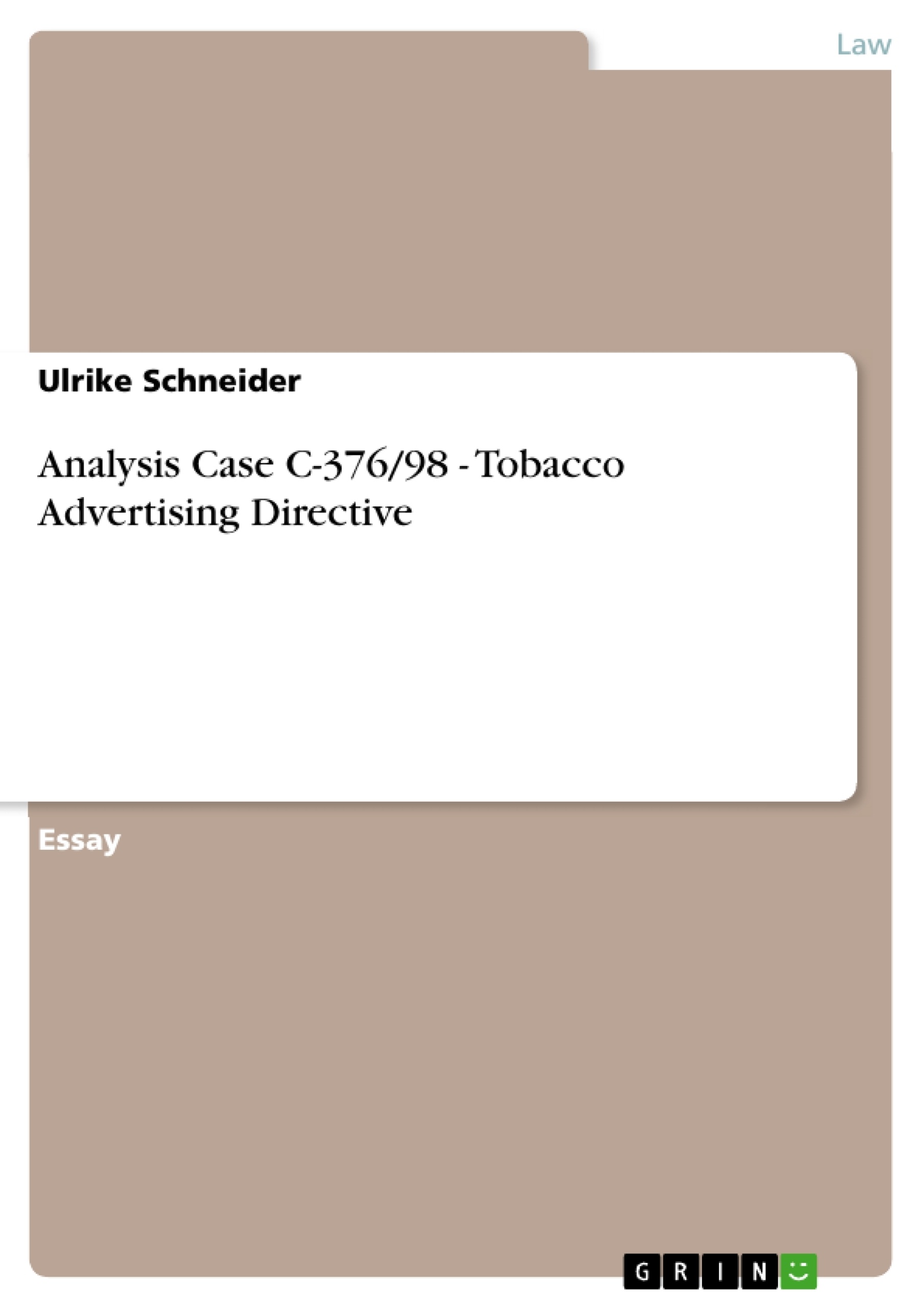The member states have transferred sovereignty to the European level, but only on certain fields that exclude the public health. Article 152 with the title “public health” describes the - only complementary - Community actions in the field of public health, regarding that the Member States still have the competencies in this field. The competence of the Community in the field of public health that is derived from Article 152 is a merely indirect one. Article 152 (1) states that the Community shall ensure a high level of human health protection, but Article 152 (4c) excludes any harmonisation of the laws and regulations of the Member States.
Analysis Case C-376/98 - Tobacco Advertising Directive

Essay , 2008 , 3 Pages , Grade: 1,7
Autor:in: Ulrike Schneider (Author)
Law - European and International Law, Intellectual Properties
Excerpt & Details Look inside the ebook

